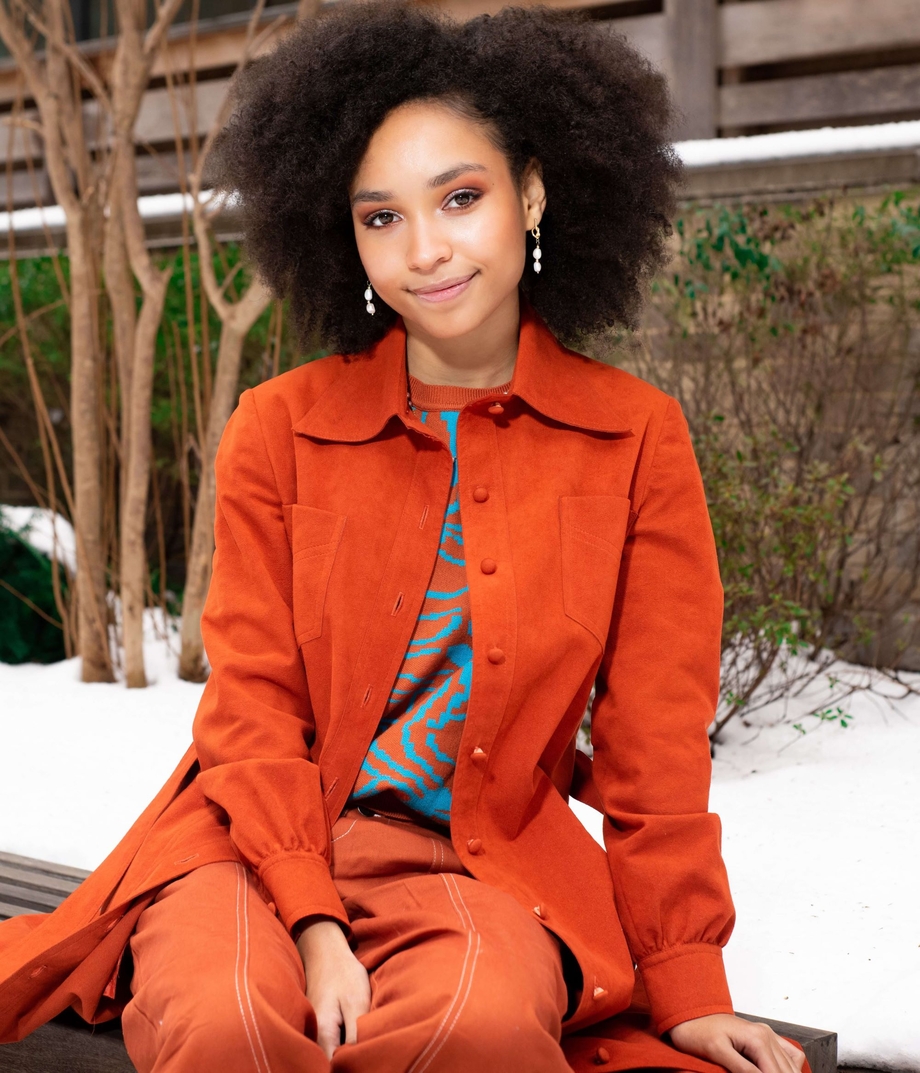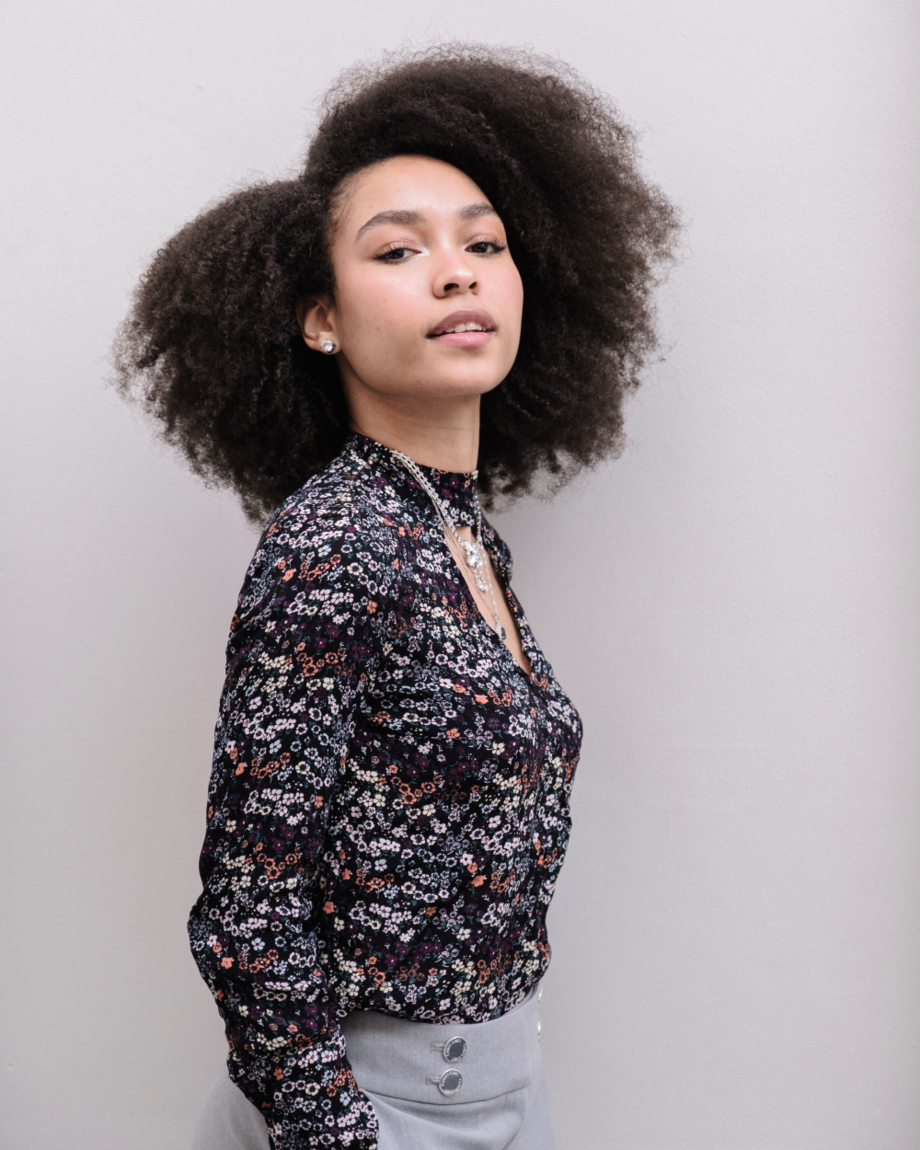February is Black History Month, a time to reflect and celebrate Black advocates and experiences. In this blog, we're continuing our series of highlighting young activists.
Anya Dillard is a 19-year-old human rights and social justice activist, social entrepreneur, model, content creator, and aspiring filmmaker. Anya is also the founder of The Next Gen Come Up, a grassroots organization that encourages the youth to fight for social change through art and content creation.
,
Stay Updated
Keep up with activist interviews and more on our email list.
,
Tell us more about your background. How did you get involved in your activism work?
My journey as a socio-political changemaker started taking shape after I turned 12, but my journey as a woman of service began when I was just five years old.
I started my very first charity initiative back in 2008 after visiting my mom at the hospital she worked at in Brooklyn, NY, and meeting the young residents of the hospital’s pediatric nursing home. The day I met those kids was the first time I had ever interacted with anyone living with severe neurological or physical disabilities. That day changed my life forever because, despite our physical differences, many kids watched the same shows I watched, read the same children’s books I read, and had the same toys I had. As young as I was, I realized that regardless of our circumstances, we were all the same — we were all just kids trying to figure life out — and we all deserved to feel loved and seen.
After meeting those kids, I remember feeling so inspired, and I couldn’t stop questioning why those weren’t the kids I saw on the lunchroom posters at my school or on the Nickelodeon shows I watched. There was so much to them, yet I felt there was nothing the mainstream media gave them that made them feel seen or adequately represented and/or cared for. Little me became determined to take part in changing that.
By that winter, my mom and I raised over $1,000 to purchase undergarments, blankets, and toys to gift to the children in honor of the holiday season. After a successful first year, Anya’s Holiday Gift Giving Charity became a smashing success and has since raised thousands of dollars annually to provide clothes, undergarments, toys, musical instruments, and other necessities for children (ages newborn to 18) suffering from severe physical and neurological disabilities.
,

,
As we approach our 13th year of gift-giving, this is officially the longest-running charity initiative I’ve ever spearheaded. My time at the hospital taught me that there were so many different kinds of people in this world, and the fact that there are a lot of kids who grow up not understanding that is so harmful. That’s why there is still so much hatred, such a lack of understanding for other people’s experiences, and such a lack of empathy everywhere, from our public school environments to the White House.
What’s the biggest accomplishment you’re proud of?
If I had to choose one thing that I’m most proud of, it would have to be the network of support I’ve developed through connecting with other youth. Because of the work that I’ve done, I’ve gotten opportunities to speak at schools, events, and youth mentorship programs all over the world. I receive so many messages — some from parents and kids as young as eight years old — telling me that I inspired them to start their own charity initiatives, strive to be changemakers in their desired career field, stand up to bullies in school, or even try out for that school club they were always scared to join.
I have also mentored young girls and assisted them in developing nonprofit organizations and charity initiatives of their own. Being able to serve as a positive support for youth all over the world has been such an honor, and even after I’m gone, I hope to leave behind a legacy that continues to inspire young people to be bold, to be kind, and to be changemakers in their life paths.
When thinking about your own Black history, what brings you the most joy?
When I think about my Black history, the vibrance and overwhelming presence of Black love throughout my upbringing brings me the most joy.
I was born into a big family of Black creatives, artists, and entrepreneurs, and grew up in an upper-middle-class suburb in West Orange, New Jersey. Growing up in a diverse area, I had grown up with every kind of person; no matter their color, gender, class, or creed, everyone was my friend and a member of my community.
,
,
Despite the cruelty society imposes on Black people in this country, my family never taught me to fear my blackness, nor did they teach me that my blackness was something that would hold me back. If anything, my family always taught me that everything that made me beautiful, everything that made me brilliant, and everything that made me powerful came from my identity as a Black woman. They taught me to value my African-American and Guyanese heritage, be worldly, and lead in my ancestors' legacy. I grew up being able to cook like a Jamaican, talk like a Brit, and dance like a New Yorker, and being Black had everything to do with it.
Growing up, being Black always felt like one of those feel-good movies; no matter what life threw my way, I always walked with my head held high, reminding myself that I had a crown up there to protect. Growing up, being Black was pouring libations at Thanksgiving dinner, fighting my brother for the last piece of curry chicken, and my mother playing strictly jazz and Black Christmas music from Thanksgiving all through New Year’s. It was having cocoa butter and earrings on at all times, living my life to Chance the Rapper’s and Public Enemy's discography, and doing the Electric Slide with 200 beautiful Black strangers at Spike Lee’s Do The Right Thing block parties. It was walking the streets of Saint Lucia in the summertime and feeling like I’d never left home.
,

,
For me, growing up, being Black was attending a public high school where the members of the gospel choirs and step teams pulled larger crowds than our sports teams did. It was tapping into my creativity, rocking my wild curls unapologetically in the whitest of rooms, and curving everyone that thought “You’re pretty for a Black girl” was a compliment. It was running for student council president, winning, appointing an entirely female POC cabinet, and becoming the first Black girl in my school ever to do it.
Growing up, being Black was becoming a part of organizations like BLACK GIRLS ROCK, spending summers exploring historically Black colleges and universities (HBCUs), co-organizing my town’s first-ever Juneteenth celebration, and speaking in front of 3,000 people at the largest civil rights demonstration in my town’s history.
,
,
I grew up being proud of my blackness, but growing up Black taught me that our society had been trying to work against that pride for many years. Growing up Black inspired me to become a revolutionary because, to me, it meant waking up every single morning and realizing that I am my ancestors’ wildest dream.
If you could give one piece of advice to someone who wants to better our democracy – what would you say?
Audre Lorde once said, "When I dare to be powerful — to use my strength in the service of my vision — then it becomes less and less important whether I am afraid." This is a motto that I live by and am always sharing with young people who want to get involved in making positive social change.
To be a genuine advocate for our democracy, you must have the courage to spark important conversations and ask the tough questions. You have to encourage cross-cultural and multi-ideological discourse and prioritize educating yourself about the way in which our democracy is both working and falling short. For, as noble as our country's democracy strives to be, if the last four years have taught us anything, our democracy needs a lot of love, and our systems can only improve through constructive feedback.
Evolution cannot happen without discourse, and solutions will never be found short when we learn to have effective conversations across communities. And I advise any young person that wants to see this democracy live up to its name to lead with fearlessness. Voice your opinion and encourage others to do the same. Silence equals complacency, and it's our duty as a collective society to hold our systems of government to a higher standard.